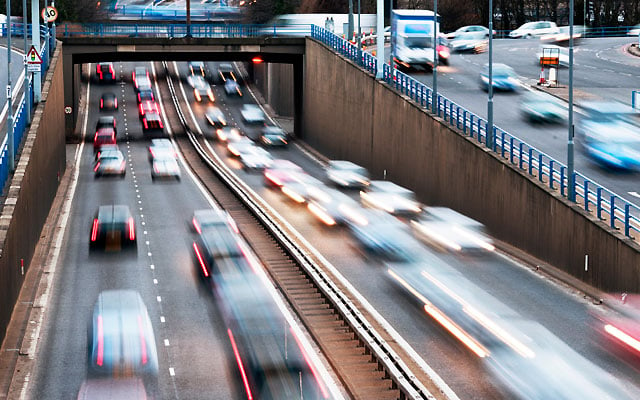We’ve been campaigning for years to tighten up enforcement of drug driving and started the ball rolling with a round table organised with the Home Office, police, Department for Transport, and medical and addiction experts in 2008.
7 years later, in March 2015 a new drug driving law was introduced in England and Wales which sets:
- 'Zero tolerance' limits for 8 illegal drugs, and
- 'Risk based' limits for 8 common prescription drugs estimated to be included in 19 million prescriptions every year.
The police only need to obtain a blood sample and show that any of the specified drugs are present above the limit specified.
They can also use a roadside 'drugalyser' to test for cannabis and cocaine.

'Illegal' drugs
- Benzoylecgonine – 50µg/litre of blood
- Cocaine – 10µg/litre
- Delta-9-tetrahydrocannibinol (cannabis) – 2µg/litre
- Ketamine – 20µg/litre
- Lysergic acid diethylamide – 1µg/litre
- Methylamphetamine – 10µg/litre
- MDMA – 10µg/litre
- 6-monoacetylmorphine (heroin) – 5µg/litre
'Medicinal' drugs
- Clonazepam – 50µg/litre of blood
- Diazepam – 550µg/litre
- Flunitrazepam – 300µg/litre
- Lorazepam – 100µg/litre
- Methadone – 500µg/litre
- Morphine – 80µg/litre
- Oxazepam – 300µg/litre
- Temazepam – 1,000µg/litre
- Amphetamine – 250µg/litre
For the medicinal drugs the limits are higher than normal prescribed doses so you’ll be able to drive as normal, so long as:
- You’re taking medicine in accordance with the advice of a healthcare professional and/or as printed in the accompanying leaflet, and
- your driving isn’t impaired.
There’ll be a medical defence if you’ve been taking medication as directed and are found to be over the limit, but not impaired.
Advice
If you’re taking any of the specified 'medicinal' drugs:
- Don't stop taking your medicines, prescribed or otherwise.
- If you're not sure if you’re safe to drive, check with your pharmacist or doctor.
- Follow the advice of a healthcare professional and read the accompanying leaflet.
Impairment
The offence of driving while impaired by drugs remains.
If the police stop you and suspect that your driving may be impaired by drugs they can assess your capability to drive using a series of field impairment tests:
- Pupil dilation
- Counting out loud
- Walking in a straight line
They must prove, through a subsequent blood test, that drugs have caused any impairment observed.
